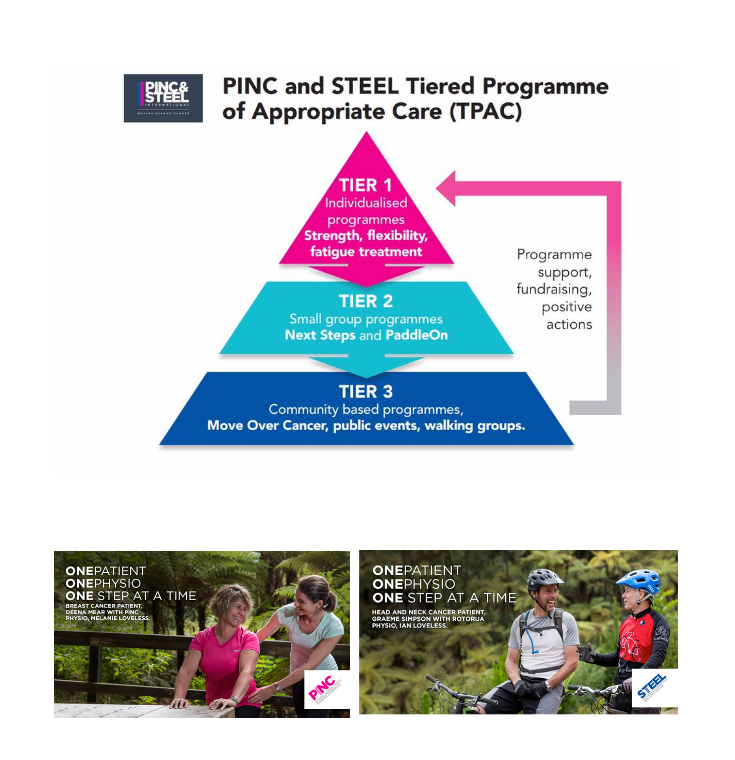Cancer Rehabilitation

Cancer Rehabilitation
Cancer is a major health issue for New Zealanders. One in three New Zealanders will have some experience of cancer, either personally or through a relative or friend. With earlier cancer diagnosis, new and improved treatments, survival rates are higher than ever. But, with little or no rehabilitation support, patients are often faced with downward spiralling cycle of illness, treatment and deconditioning. Patients fear of losing independence and progressively debilitating disease is among the most distressing concerns of this patient group. Functional decline fosters a sense of helplessness and vulnerability.
While rehabilitation and exercise can not eliminate cancer’s assaults on the body, it can certainly decrease and decelerate the impact on function, strength and stamina. The aim is to allow people to live to their own maximum potential, performing at the limit of their physical and mental capacity with control and independence whenever possible.
If people don’t get rehabilitated after cancer it can affect their ability to work, their families, their physical, emotional and social well-being, their long-term health and ultimately survival.
Pinc and Steel Cancer Rehabilitation is a programme to provide that support. Pinc and Steel Cancer Rehabilitation is not new to Timaru. It is a national programme brought to Timaru by Physiotherapists Pam Allan and Myra Adams in 2009. The service continues to grow with individualised programmes (Pinc and Steel) and a group exercise programme (Next Steps). These are majority funded by the Pinc and Steel Cancer Rehabilitation Trust (most of the funds raised locally) and mostly through the recent fundraiser, Paddle for Life. Unfortunately, although Cancer rehabilitation is deemed to be significant in allowing people to live to their maximum potential, this has no government funding in New Zealand.
Cancer rehabilitation commonly includes manual physiotherapy, progressive resistance training, clinical pilates, fatigue management, breathing education, and exercise prescription but is determined on an individualised basis depending on the specific patients needs.
Every cancer patient should have the opportunity to have rehabilitation support
to help them heal as well as possible, function at optimal level and improve their quality of life.

